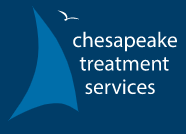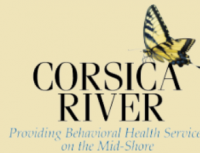About This Maryland Facility
Community Behavioral Health is a leading provider of mental healthcare services in the Cambridge, MD area. Their expert team specializes in treating addictive behaviors, such as alcohol and opioid abuse, as well as dual diagnosis and drug addiction. Clients receive comprehensive care that is tailored to their individual needs, with a wide range of levels of care and treatments available.
CBH offers a range of therapeutic approaches to treat addiction, including group and individual therapy, couples counseling, Dialectical Behavioral Therapy (DBT), Cognitive Behavioral Therapy (CBT), experiential therapy, life skills, nicotine replacement therapy, and nutrition therapy. Additionally, CBH is accredited by the Joint Commission on Accreditation of Healthcare Organizations (JCAHO) and accepts private health insurance. They provide both inpatient and outpatient care, and offer residential long-term treatment programs. Their staff is committed to providing the highest quality care for clients, helping them to take back control of their lives and overcome their addictions.
Genders
Ages
Modality
Additional
Accreditations

JCAHO
Conditions and Issues Treated
Opioid Addiction Treatment supports people recovering from addiction to prescription drugs as well as illegal opioids. This is a hospital-based or residential treatment. Depending upon one’s age, detox without the appropriate medication may be unpleasant or even dangerous–some get body aches, fever, chills, while others may even have seizures.
Opioid treatment involves medically assisted detox, physical and mental support. Most rehabilitations use an array of treatments to ensure overall wellbeing, such as Medication-assisted therapy (MAT) in which one gets behavioral therapy, medicines, and counseling. A client-centered approach can reduce one’s chances of relapse. Therapists at work with the client to figure out environmental and behavioral triggers, giving them the power to change the patterns.
Levels of Care Offered at Community Behavioral Health
This center offers a variety of custom treatment tailored to individual recovery. Currently available are Drug Rehab, Dual-Diagnosis, Inpatient, Outpatient, with additional therapies available as listed below.
An inpatient is a person who stays in a hospital or rehab center during treatment. For alcohol- and drug-dependent individuals, inpatient rehabs provide individualized around-the-clock services. Inpatient treatment programs address a person’s unique physical, medical, and psychological needs. A team of experts assess the severity of the addiction and design a highly tailored program. typically, the length of stay in an inpatient facility in Cambridge, MD is 30 days. Those with severe addiction may need to stay at the facility for 60 to 90 days.
Outpatient rehabilitation is a treatment that exists if a patient is not checking into Community Behavioral Health long term. In addition to helping them recover, the patient attends regular therapy sessions and detox and participates in other therapies. However, this is all primarily done from home. As a follow-up to inpatient treatment, outpatient treatment is usually recommended.
After rehabilitation, it helps people return to their everyday lives. It may also be an alternative to inpatient care in some situations. If they cannot leave their jobs, children, or don’t have the money for inpatient care, people can choose this method. Inpatient therapy, however, is the best method and most suggested level of treatment offered by Community Behavioral Health in recovering from addiction.
Therapies & Programs
Individual therapy involves one on one sessions between the patient and the therapist at Community Behavioral Health. Individual therapy provides patients with a safe environment where they can openly discuss their problems with the therapist. The patients find the therapist as a person who they can trust. It helps them to open up and discuss personal and sensitive issues, which they may not be comfortable discussing in a group setting.
Individual therapy aims to identify the core issues that would have led the patient to substance abuse and address the root cause effectively. The therapist can develop patient-specific customized solutions through individual therapy, which aids speedier recovery.
Addiction and alcoholism always harm an addict’s relationships with others and none more than relationships with a spouse or partner. Couples therapy is an essential part of restoring trust and good communication to intimate relationships harmed by addiction. Couples therapy by Community Behavioral Health helps repair the damage done to these important relationships.
Recovery can be more effective if the entire family’s involved. Family therapy hosted by Community Behavioral Health brings in the addict’s family to explore genetic factors. It gives loved ones the tools for dealing with addiction and its underlying mental issues. It is a recommended step in helping addicts adapt to sober living.
Trauma is one of the most common causes of psychological disorders. It’s often found in people with addiction diagnoses. Trauma therapy addresses this by examining the emotions and thoughts people have formed due to past traumas. Traumas are complex but trauma therapy can reduce their ability to contribute to addictive behaviors.
Dialectical Behavioral Therapy is a form of Cognitive Behavioral Therapy. It is designed for those who are prone to self-harm and suicidal behaviors. Community Behavioral Health aims to help patients understand the relationship between their thoughts, feeling and behaviors and it gives them the tools to make a change. It is effective for those whose addictions and behaviors stem from extreme mental health issues.
Rehabilitation is not just limited to bringing an individual out of addiction and achieving sobriety. It is considered complete only when an individual starts leading a normal and balanced life. Life skill therapy focuses on the various skills that helps an individual to lead a normal life. Patients often do not take care of themselves, struggle professionally and withdraw from social interaction due to the physical and emotional disturbances caused by addiction.
Life skills therapy helps them to improve various personal, professional and social skills such as cooking healthy meals, maintaining proper hygiene, budgeting, decision making, time management, regulation of emotions and resolving the interpersonal conflicts effectively.
The right diet can improve a person’s general outlook, sleep habits and thought processing skills. MNT also lowers the occurrence of chronic diseases such as adult-onset diabetes. Dieticians like those at Community Behavioral Health in Cambridge, MD believe that nutrition therapy is the key to making significant lifestyle changes.
Nicotine Replacement Therapy (NRT) uses low dose nicotine products to ween smokers away from cigarettes. The products get nicotine into the bloodstream without smoking reducing addiction to the physical habit. It also allows addicts to adjust to lower doses to reduce withdrawal symptoms.
Patient Experience
Experiential Therapy at Community Behavioral Health
Experiential therapy involves recreating or creating new experiences for the patient. Many people struggled with past issues such as memories or trauma. By creating a new experience, it allows people to work through the issues associated with those moments in a new experience. This can give them a new measure of control and can help them role play a new scenario. That can help push addiction into their past and help them begin the healing process.
Payment Options Accepted
For specific insurance or payment methods please contact us.
Is your insurance accepted?
Ask an expert, call (888) 674-0062
Additional Details
Specifics, location, and helpful extra information.
Cambridge, Maryland 21613 Phone Number(410) 228-3929 Meta DetailsUpdated November 25, 2023
Staff Verified
Patient Reviews
There are no reviews yet. Be the first one to write one.
Cambridge, Maryland Addiction Information
For the past decade, Maryland's rate of drug use and abuse has significantly increased. The overdose rate is currently higher than the national average. This epidemic is due to the many industries where manual labor is required. As soon as prescription opioids were more readily accessible a large part of manual workers started using–and eventually abusing–the painkillers.
10% of Cambridge residents reported abusing illicit drugs in the past year. Opiates were the most commonly reported drugs, with 6% of residents reporting abuse. 18% of drug overdose deaths in Cambridge involve prescription opioids. 26% of drug users are between the ages of 18 and 25. Treatment for drug addiction and abuse is available in Cambridge, but it is important to choose a reputable and accredited facility.
Treatment in Nearby Cities
- Leonardtown, MD (36.0 mi.)
- Lexington Park, MD (30.0 mi.)
- Andrews Afb, MD (47.0 mi.)
- Catonsville, MD (60.8 mi.)
- White Plains, MD (47.4 mi.)
Centers near Community Behavioral Health
The facility name, logo and brand are the property and registered trademarks of Community Behavioral Health, and are being used for identification and informational purposes only. Use of these names, logos and brands shall not imply endorsement. RehabNow.org is not affiliated with or sponsored by Community Behavioral Health.








